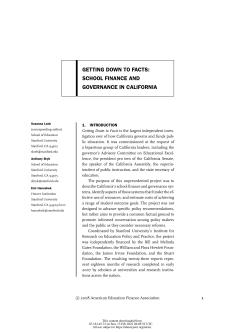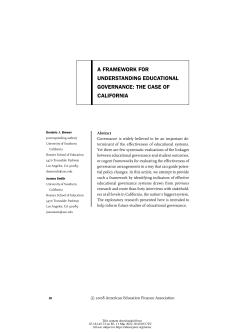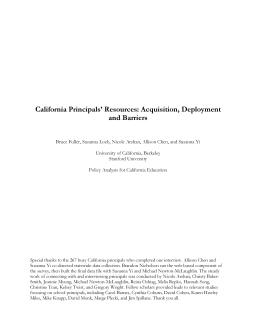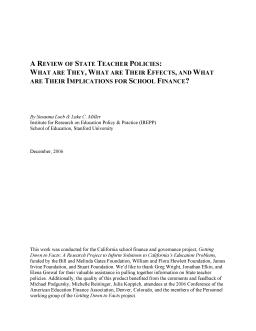School Finance and Governance in California
Published
Summary
Getting Down to Facts is an extensive investigation of CA's public education system commissioned by a bipartisan group of CA leaders. The project aimed to describe California's school finance and governance systems, identify obstacles hindering resource utilization, and estimate costs to achieve student outcome goals. The project resulted in 23 reports by scholars, which highlight that the current school finance and governance systems fail to help students achieve state performance goals, particularly those from low-income families. The reports provide a framework for assessing reform options.
The Case of California
Published
Summary
This article highlights the lack of systematic evaluations of the relationship between educational governance and student outcomes. The authors provide a framework for evaluating the effectiveness of governance systems, drawing from previous research and interviews with stakeholders in California's educational system. The aim is to guide potential policy changes and inform future studies of educational governance.
Acquisition, Deployment, and Barriers
Published
Summary
This report examines the fiscal and labor resources of California principals and how they acquire and utilize them to improve student performance. The authors seek to understand the background characteristics and educational goals of California principals, as well as the types of monetary, human, and informational resources they acquire and how they allocate these resources within their schools. The report also explores the support and constraints that principals experience from various actors as they attempt to acquire and deploy resources to raise student performance.
What Are Their Effects, and What Are Their Implications for School Finance?
Published
Summary
The report explores the impact of teacher sorting, or the tendency for high-achieving students to be assigned to more effective teachers, on student achievement. It finds that teacher sorting has a significant positive effect on student achievement in both math and English language arts. The effects are particularly strong for students who start out low-achieving. The report argues that policies aimed at reducing teacher sorting, such as random assignment of students to teachers, may be counterproductive for student achievement.



